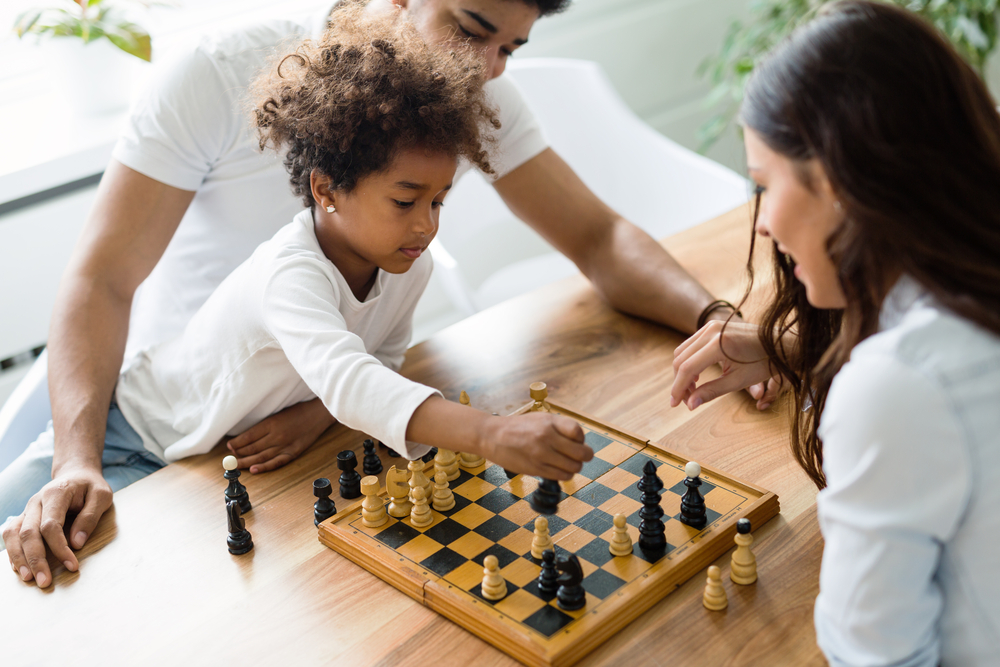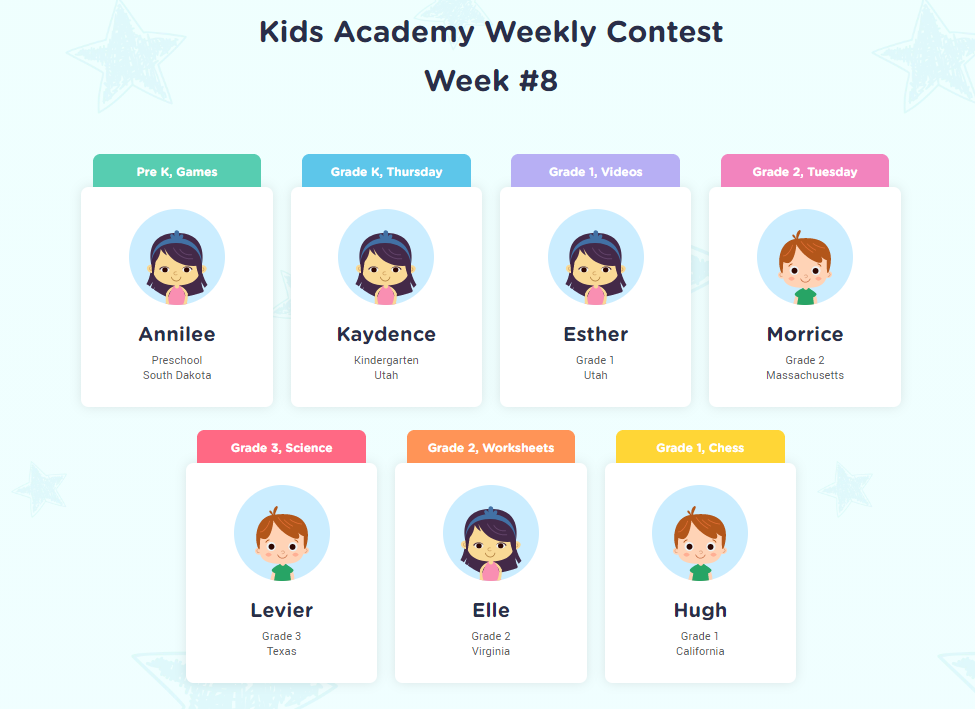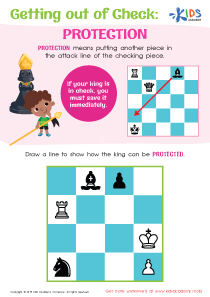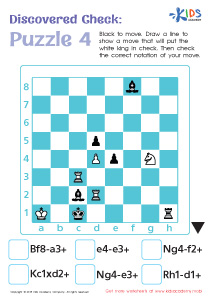Enhancing problem-solving skills Chess Worksheets for Ages 6-9
3 filtered results
-
From - To
Unlock the power of critical thinking and problem-solving for your child with our "Enhancing Problem-Solving Skills Chess Worksheets" designed for ages 6-9! These engaging worksheets integrate the classic game of chess to foster strategic thinking and analytical skills in young learners. Each worksheet is packed with fun activities that challenge kids to think critically and explore various problem-solving strategies while playing chess. Perfect for home or classroom use, our resources help children develop a strong foundation in logic and reasoning. Empower your child with essential skills for lifelong success through the captivating world of chess! Download our worksheets today and watch them thrive!
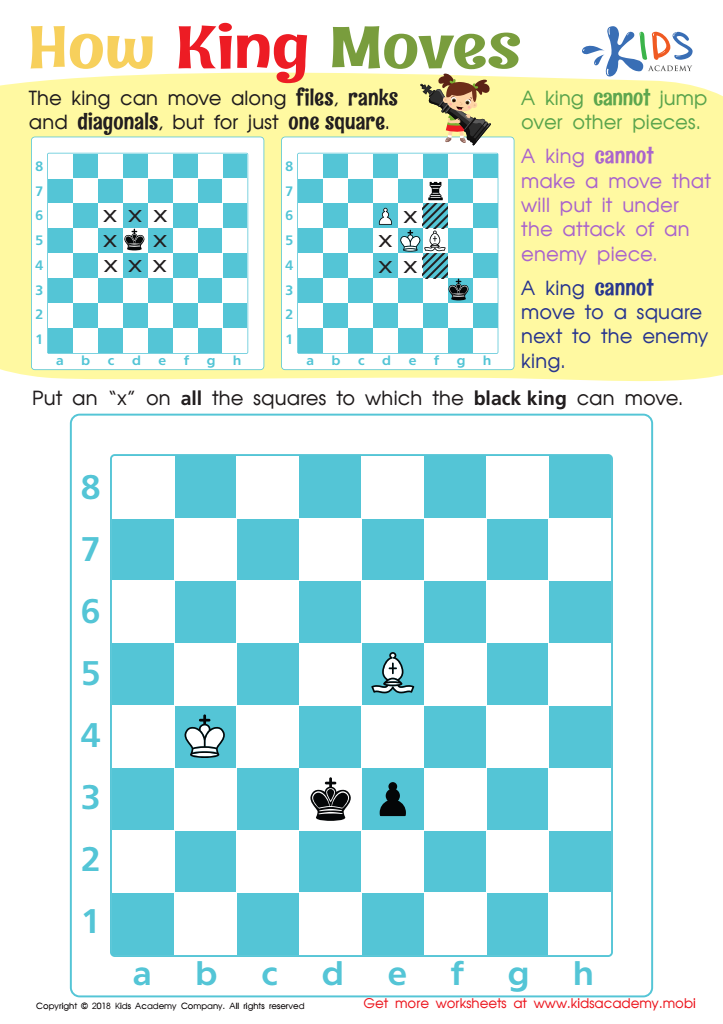

How King Moves Worksheet
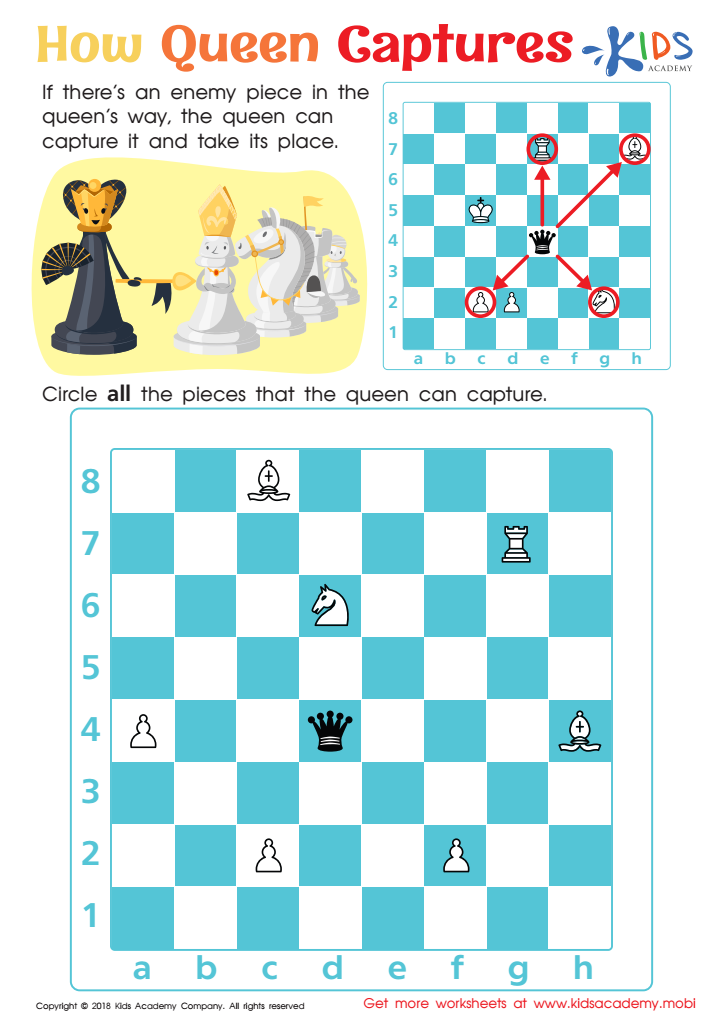

How Queen Captures Worksheet
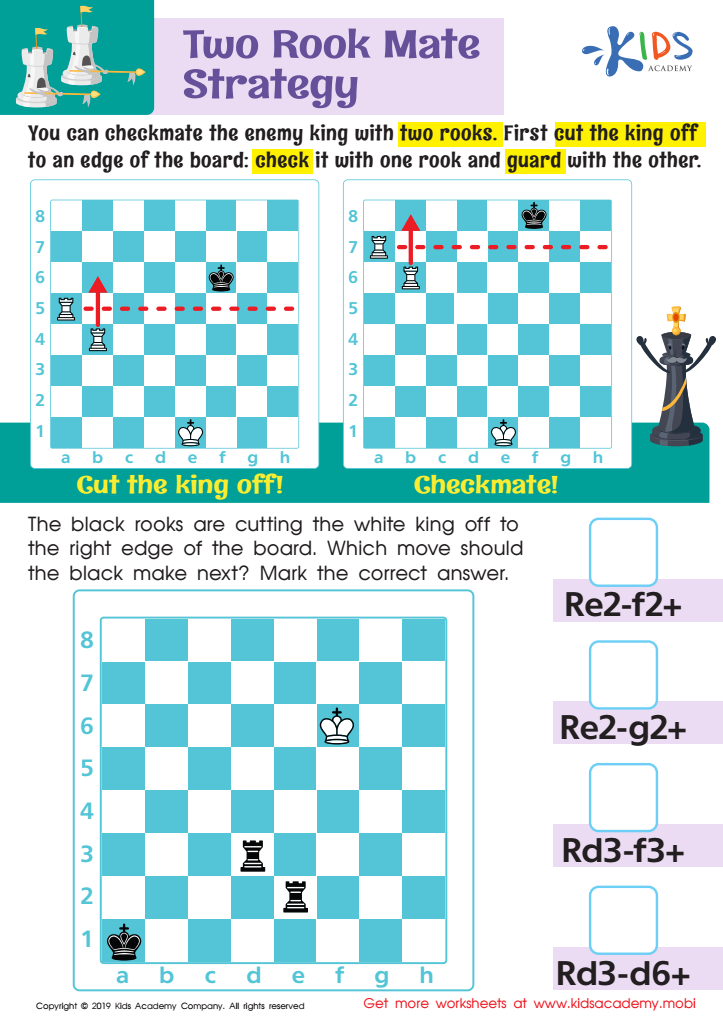

Two Rook Mate Strategy Worksheet
Enhancing problem-solving skills through chess for children aged 6-9 is invaluable for several reasons. First, chess promotes critical thinking and cognitive development. As children learn to evaluate different moves, foresee consequences, and strategize, they enhance their ability to analyze situations logically—a skill that transcends the game and applies to everyday life.
Moreover, chess encourages perseverance and resilience. In the face of challenges, children learn to stay focused and patient, reinforcing the understanding that success often comes with practice and learning from mistakes. This resilience is vital for academic performance and personal growth.
Another significant benefit is the promotion of sportsmanship and social skills. Playing chess teaches respect for opponents, sharing space, and handling wins and losses graciously. Building social skills at this young age fosters positive peer relationships and teamwork.
Lastly, introducing chess can be a fun and engaging way to introduce complex concepts such as patterns, tactics, and abstract thinking, making learning enjoyable. Overall, integrating chess into education can provide children with essential life skills that will serve them well beyond the classroom, preparing them for future challenges and improving their overall academic performance.
 Assign to My Students
Assign to My Students



